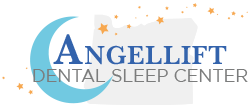There are a number of tools sleep medicine professionals use to determine the nature and extent of sleep disorders. A simple self test commonly used as an indicator of poor sleep is the Epsworth Sleepiness Scale. This scoring system is used to determine a person’s level of daytime sleepiness. A score of 10 or more is considered sleepy. A score of 18 or more is very sleepy. If you score 10 or more on this test, you should consider whether you are obtaining adequate sleep, need to improve your sleep hygiene and/or need to see a sleep specialist. These issues should be discussed with your personal physician.
Use the following scale to choose the most appropriate number for each situation, then add up the totals to obtain your score. Begin the evaluation by answering the first question below:
Are you the snorer or is it your bed partner who snores?
Your score indicates you may not have OSA. If you feel you have symptoms, consult with Dr. Hales or your personal care physician.
Your answers to these questions indicate that you may be at risk for Obstructive Sleep Apnea. You should consult with your physician or Dr. Hales to see what treatment options are available to you.
Dr. Hales is qualified to screen you for OSA. He can refer you to the appropriate physician who can properly diagnose your sleep condition, and work with a medical team to explore the best treatment option for you. Call 541-474-1100 if you would like to arrange a personal consultation with Dr. Hales.
With a score of less than 5 your partner may not suffer from OSA. If you feel they have some symptoms, consult Dr. Hales or your personal care physician.
A score of 5 or greater indicates symptoms which are affecting the health, safety, or quality of life of the observed person.
Dr. Hales is qualified to screen them for OSA. They can refer you to the appropriate physician who can properly diagnose your sleep condition, and work with a medical team to explore the best treatment option. Call 541-474-1100 if you would like.



